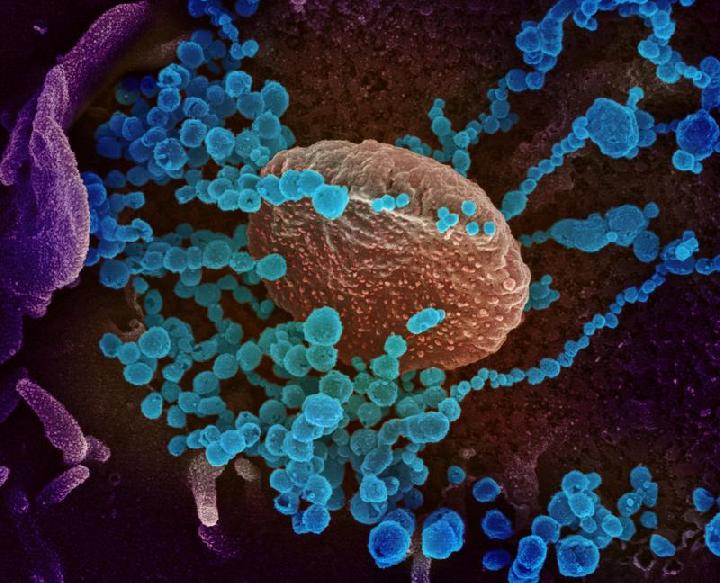Garbage Went Up as Homes were Locked Down
Translator
Tempo.co
Editor
Petir Garda Bhwana
Selasa, 21 Juni 2022 11:16 WIB

By Gabriel Andari Kristanto, University of Indonesia in Jakarta
As locked-down citizens plodded through COVID with their home-delivered meals, a new waste stream was created. It’s time to start cleaning it up.
Netflix and takeaway food became the go-to in many countries during the pandemic. Faced with extended lockdowns, people hunkered down with a good series and some chow. But the effect of all that takeaway was felt in landfills around the world. In the United States, waste-management association SWANA estimated the volume of residential waste had increased by 20 percent, in part due to online delivery services. In Japan, the city of Tokyo experienced a 3.1 percent increase in household waste.
Waste from food production – agriculture, processing and distribution – tends to be regulated. Packaging regulations aim for food protection or increased storage times. Food producers weigh up economic and commercial considerations to avoid excessive use of materials.
But packaging in the online delivery system has no standards, especially in developing economies. As takeaway apps grow increasingly common, many countries face new environmental challenges. Online food orders generate waste at the restaurant from the original packaging. Then during delivery, vendors often pack the food with extra layers to ensure consumers receive their order with consistent quality and quantity. These extra layers can be cardboard boxes, styrofoam, plastic bags, bubble wrap, plastic boxes, and tape. They may or may not be recyclable.
Despite the media excitement about electric vehicles, these represent less than 5 percent of the global vehicle fleet. As a result, home delivery often depends on fossil-fuel-powered vehicles. The greater the distance between consumer and vendor, the greater the carbon footprint of food delivery.
Food and packaging waste consists of organic components – mostly food scraps – and inorganic components. The inorganic part is plastic in various sizes and types, often with colours, stickers, adhesives or other labels. Despite being an organic material, cardboard is often categorised as inorganic. People with traditional lifedata-styles in remote areas are more likely to produce organic waste than those in urban areas living on higher incomes. Waste from urban areas tends to have more inorganic content.
The complexity of plastic waste often causes problems in recycling and waste processing. Identifying and separating the various kinds of plastic and managing their different recyclabilities is challenging. The easiest solution in many parts of the world is to send it straight to landfill.
Integrated waste management is the vital lesson for food waste and its packaging: waste must be managed from source to landfill. Various waste-treatment technologies are available, but waste avoidance or reduction is the best choice. For example, reducing food packaging for online deliveries can be done by implementing standards and education for food producers and packaging companies. The discovery of new materials can also help reduce food and packaging waste.
Recycling is critical because the waste in the food production and delivery system is mostly plastic and paper. Cooperation between residents and various franchises, delivery services and food vendors will encourage waste to be separated appropriately. Waste-collection points can be an effective solution. At collection points the plastic and paper waste has less contamination from the food, which remains at home. Separating waste improves options for waste processing further down the line.
In developing economies, informal kinds of work can become essential. Garbage pickers in Indonesia, for example, can recycle nearly 50 kilograms of waste per day, making a monthly income of US$92. Studies suggest garbage pickers should be part of the formal waste-management system to increase recycling, minimise environmental impact, and improve social welfare.
Reducing food loss, food waste and packaging can alleviate the global food imbalance, feed hungry people, and reduce disposal expenses, energy costs, and food production and labour costs. As the world emerges from the pandemic, these are issues that need to be tackled.
Gabriel Andari Kristanto is a lecturer in the Civil Engineering Department at the University of Indonesia, and teaches on air pollution, waste to energy, emissions control and environmental chemistry. Her research interests are in air pollution and solid-waste management. She declares no conflict of interest and is not receiving specific funding in any form.
Originally published under Creative Commons by 360info™.
*) DISCLAIMER
Articles published in the “Your Views & Stories” section of en.tempo.co website are personal opinions written by third parties, and cannot be related or attributed to en.tempo.co’s official stance.




















